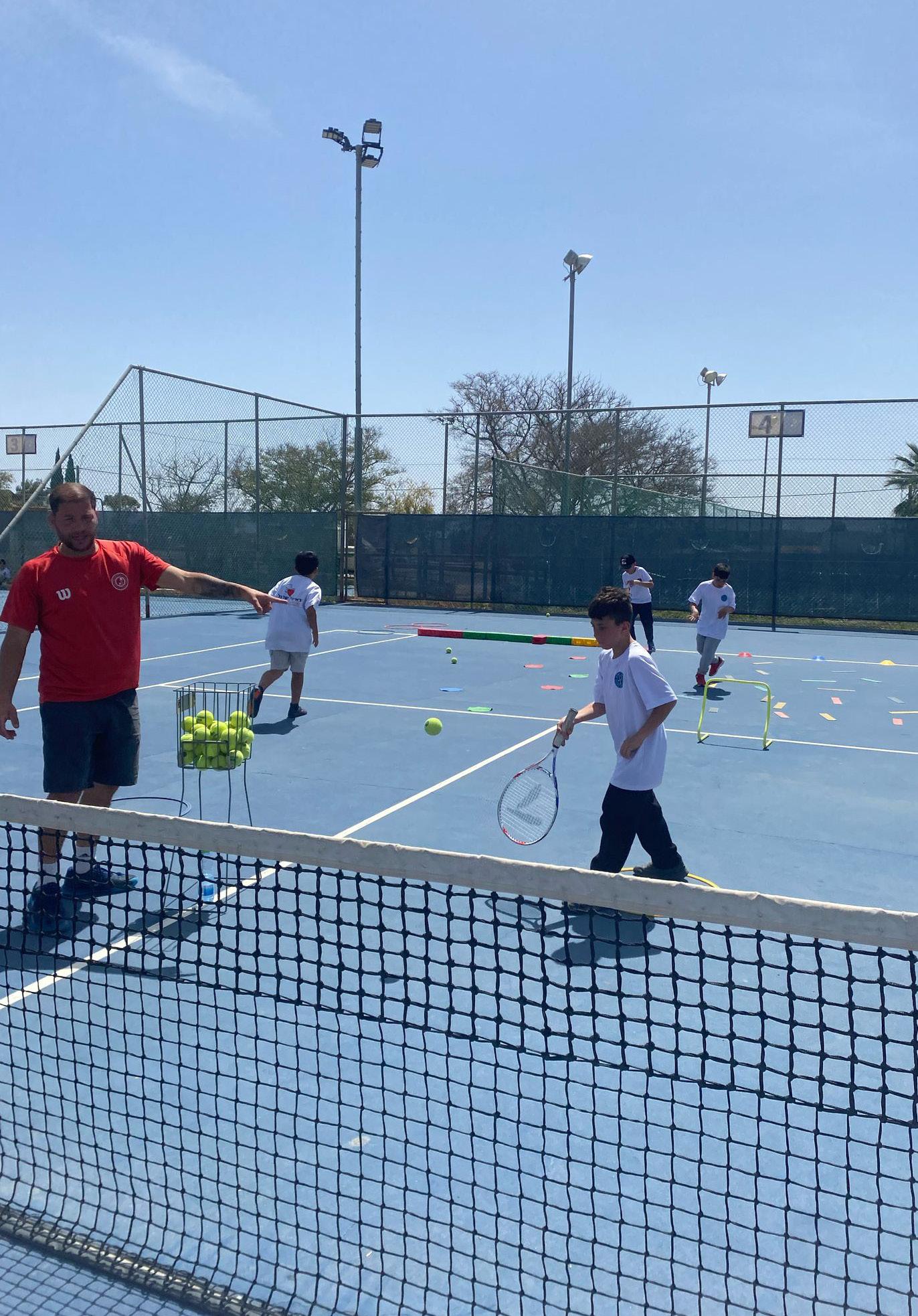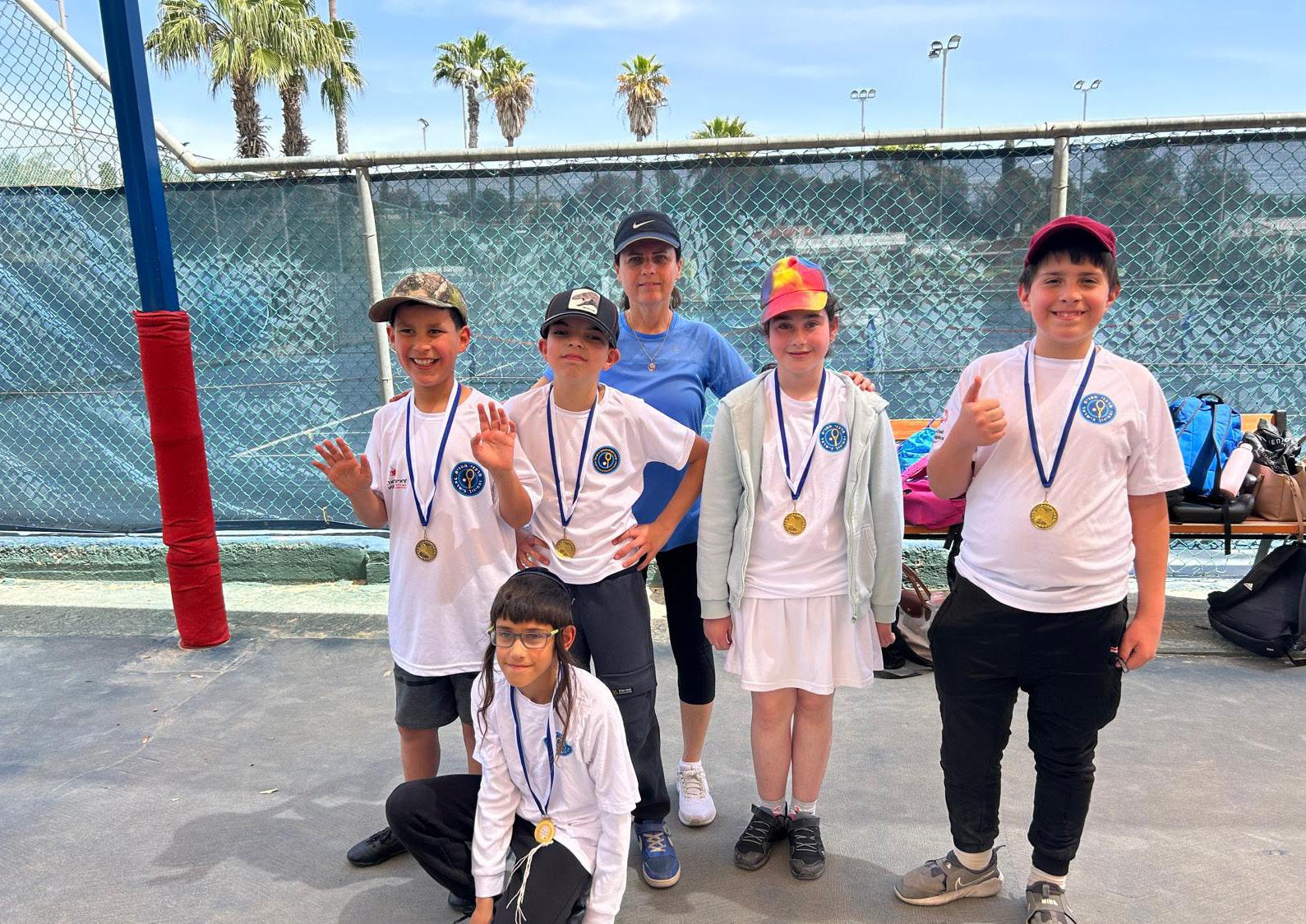Wycliffe Arad Program Report
ITEC Arad
Prepared for the Wycliffe Community
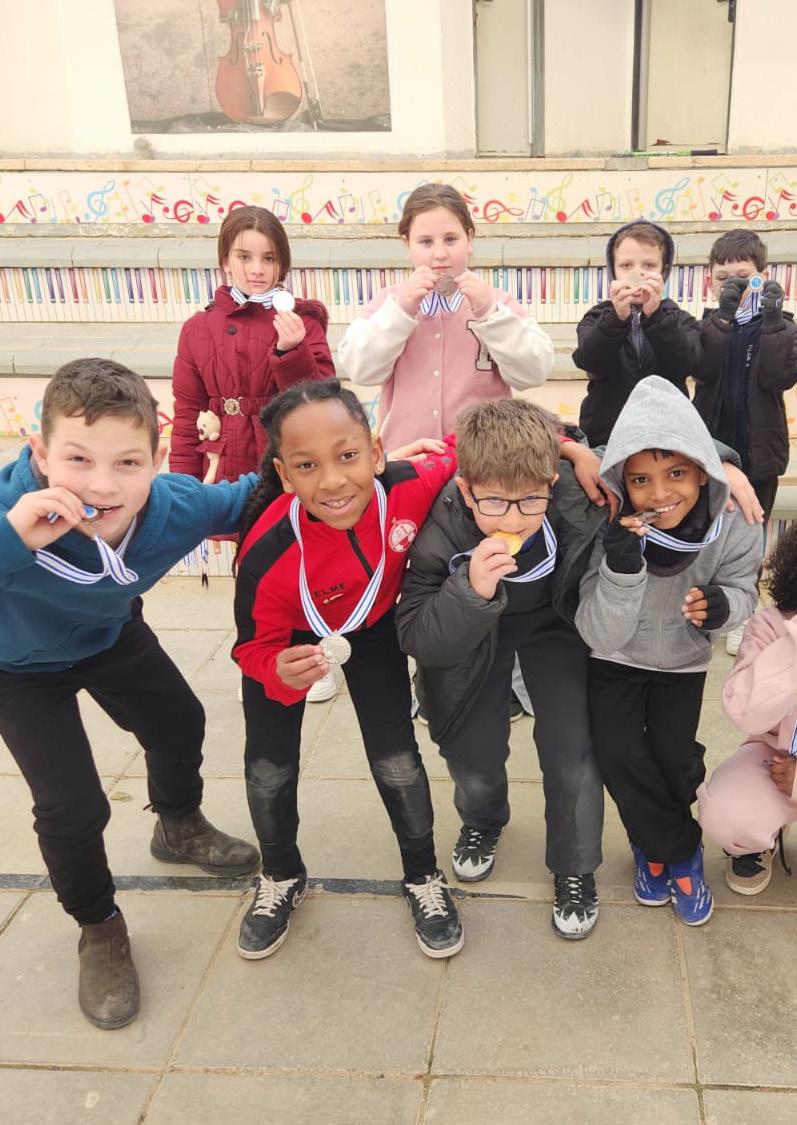

Prepared for the Wycliffe Community

Founded in 1976, the Israel Tennis & Education Centers has become one of Israel’s largest social service organizations, providing comprehensive social-emotional, athletic, and recreational programs and support services to youth from historically marginalized communities throughout the country.
Our centers, which span from Kiryat Shmona in the North to Beer Sheva in the South, serve 24 communities. They are open six days a week and welcome more than 10,000 youth annually, ranging in age from preschool to young adulthood. This includes the 1,600 youth we serve in our social-impact programs.
Our vision is a world where every Israeli child’s potential is not just realized but celebrated. We aspire to be the catalysts for positive change fostering lifelong skills, inclusivity, and excellence on and off the court.
Your support is changing lives—giving Israel’s children a sense of belonging, resilience, and hope for a better future. Thank you!
The Israel Tennis & Education Centers (ITEC) operate with the belief that sport — and tennis in particular — can transform lives. In Arad, a city marked by cultural diversity and socio-economic challenges, three flagship community programs funded through the generosity of Wycliffe have brought profound change:
The Embrace Program – Supporting children facing low self-confidence, social challenges, or learning difficulties, in both Jewish and Arab communities.
The Girls Empowerment Program – Building self-esteem, leadership, and integration for Ethiopian and Russian immigrant girls, as well as local religious girls with social-emotional needs.
The Special Needs Program – Providing inclusive sports opportunities for children with developmental, emotional, and communication challenges.
These programs combine high-quality tennis instruction with mentorship, life skills, and a supportive community, producing results that extend far beyond the court.
My name is Shuki Rajman, and since 2018, I have been serving as the Director of Education and Social Impact at the Israel Tennis & Education Centers. My role involves managing a dedicated team of 10 social impact coordinators stationed at our tennis centers, each responsible for leading and overseeing our programs.
These coordinators bring a strong educational background and extensive experience working with diverse populations. Their expertise is essential in engaging with various communities, and they operate with great sensitivity and professionalism to ensure the success of our programs. They maintain excellent relationships with the children, schools, and institutions from which the children come.
Our professional coaches and mentors incorporate tennis alongside diverse educational methodologies to equip children with critical life skills. Tennis is a unique sport that serves as a powerful medium for imparting essential values that every child needs.
Your donations enable us to reach children in need of social and emotional support, helping them grow and thrive in all aspects of life. Your generosity makes a profound difference in the lives of children from challenging backgrounds, giving them hope for a brighter future. Thanks to your contributions,
we are able to reach more children each year and instill a sense of optimism, especially in the wake of a year and a half of conflict in Israel.
Over the past year and a half, Israel has faced and continues to face significant challenges due to war. Many children in affected areas have experienced social and emotional difficulties, anxiety, and struggles in returning to a normal routine. Thanks to your support, our programs play a crucial role in helping these children rebuild their confidence and resilience during this challenging period.
The tennis court serves as a bridge for connection and empowerment, allowing children to find a shared language and develop lasting friendships. Many families of the children in our programs cannot afford extracurricular and enrichment activities. We work closely with local authorities to identify families most in need and offer them access to our programs.
The Girls’ Empowerment Program supports at-risk girls across 12 tennis centers nationwide, with a total of 165 participants. These girls come from diverse and challenging backgrounds and receive tennis training twice a week, in addition to empowerment sessions led by professional facilitators.
During these sessions, they engage in critical discussions on topics such as body image, setting boundaries, online safety, personal resilience, social skills, and overcoming challenges.
The personal stories shared by the girls about their experiences in the program are incredibly moving. They find joy in their otherwise difficult daily lives, build new friendships, and acquire valuable life skills. The program fosters a deep sense of belonging and helps them advance toward a brighter future—all while engaging in sports activities that
contribute to their well-being.
It is important for me to emphasize that your contributions are life-changing for many children. Thanks to your generosity, these children have the opportunity to experience the joys and benefits of childhood just like any other child in Israel.
The children, as well as our dedicated staff, would love to thank you in person and look forward to welcoming you on your next visit to Israel!
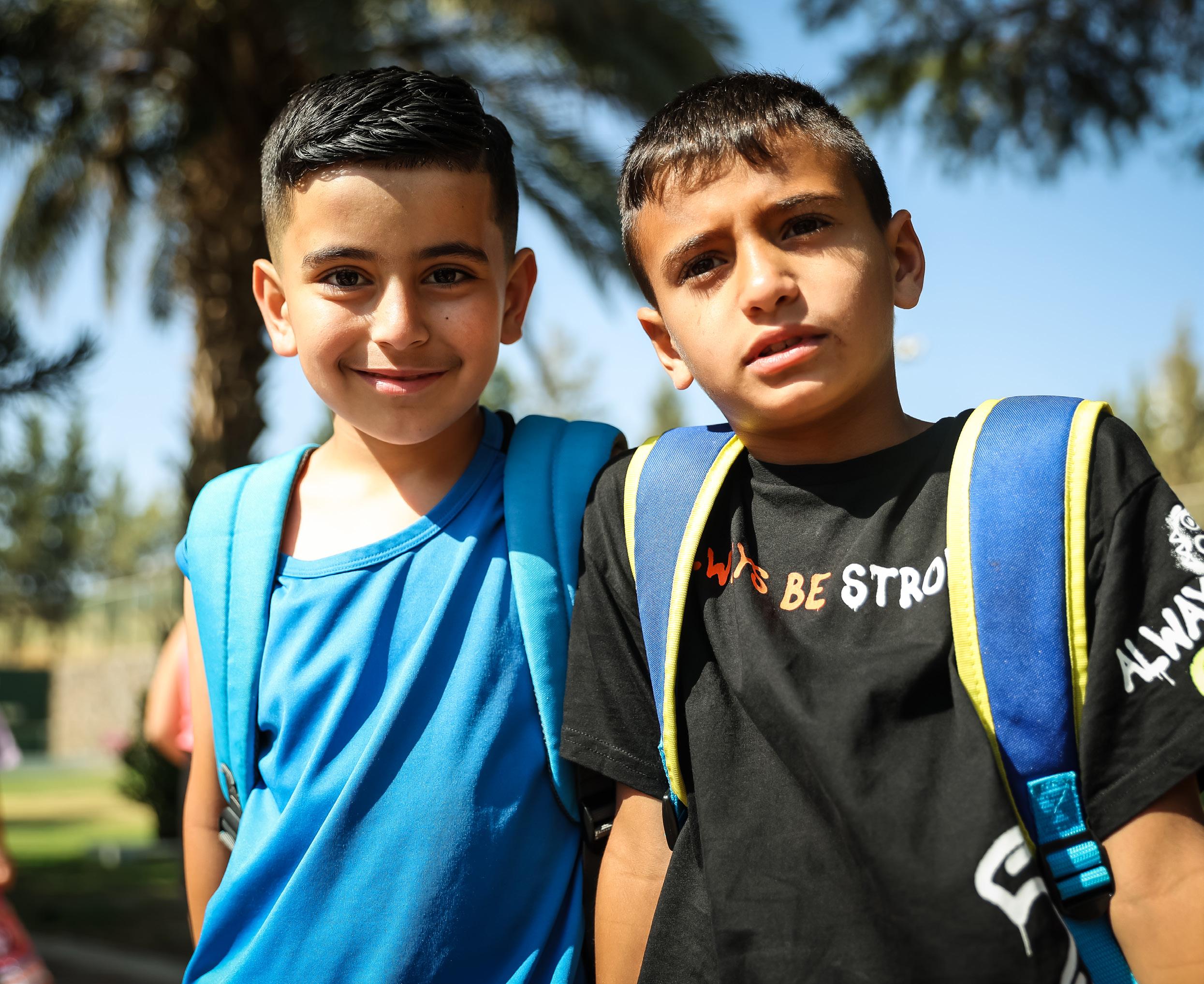
Dear Donors,
My name is Jenya Gmar Weiner, and I am the coordinator of all social impact programs at the Arad Tennis Center. I have been in this role for three years, and I can honestly say that I enjoy every moment.
I truly love working with children – I believe they are our future. The responsibility I’ve been given allows me to meet many new children from challenging backgrounds, help them, and support their development. Every time I see one of our program groups, I can literally see the transformation they go through – from children with low self-esteem to happy children who are not afraid to speak up and share their opinions, who know how to respect one another, and who form unique bonds within the program.
For me, this role is a mission – an opportunity to make our society a better place by helping these children integrate more smoothly into society and teaching them that everyone is equal, regardless of background, language, customs, religion, race, or gender.
Over the years, I’ve seen these groups grow and develop. For example, at first, the “Girls Empowerment” group included only girls from Ethiopia, but now it also includes girls from Russia and others from religious schools who
face social, emotional, or attention-related challenges.
Whenever I speak with representatives from these groups, they constantly tell me how much these activities have helped the children – how they’ve flourished and grown since they first discovered the game. Participation has strengthened them mentally and physically, all thanks to tennis.
I also witnessed how vital these groups are during the recent war in Israel. War is not simple – it’s stressful, with alarms, fear of losing someone, and uncertainty about when it will end. It’s a time that can throw anyone off balance. For these children, already facing life challenges, the program became even more crucial. When they come to play, I can see the relief in their eyes as they focus only on the game – it lets them forget about the war and just be children again, even if only twice a week.
Because of the war, the coach of the “Havak – Arab Society” group was called to reserve duty, and I stepped in for two months. Coaching was a completely new world for me – at first intimidating – but the children quickly made me realize everything was possible. I developed training plans and gave them my best. Coaching gave me a new perspective: as a coordinator, I knew the children, supported them, helped them learn Hebrew, and
cared for their needs. As a coach, I got to know them even more deeply – an opportunity I would never have had otherwise.
So, I want to say a huge thank you! Because of you, all this is possible. You enable us to improve these children’s lives, provide a supportive and fun environment where they can forget their worries and simply enjoy themselves twice a week. You also help shape their personalities and ease their integration into society.
Through the program, some learn a new language, some improve their fitness, and all gain life experiences that help them cope with challenges. They take part in competitions, tournaments,
trips, and workshops. They develop self-confidence, learn to communicate despite differences, conduct respectful dialogue, listen without judgment, and cooperate. Through tennis, they learn values like perseverance, respect, striving for excellence, competitiveness, humility, and sportsmanship.
In short, I have only one word for you –thank you.
Because of you, we have the ability to influence and shape the lives of so many children!
Jenya Gmar Weiner
Social Impact Coordinator ITEC Arad
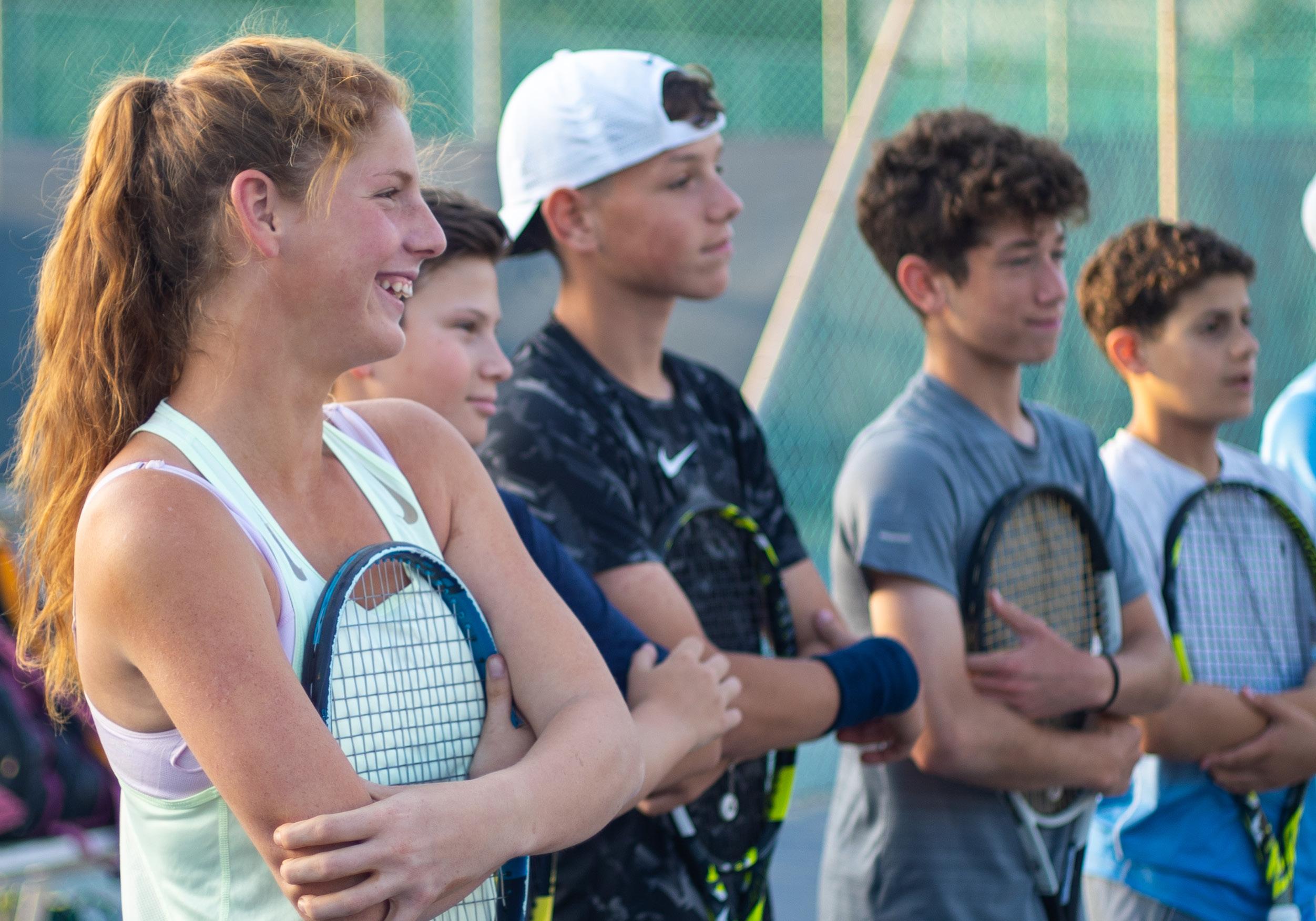
Dear Donors,
Another chapter has come to a close – a challenging year, full of obstacles, especially for the children and families we work with every day.
In a time when hope sometimes fades, you were the light. Your gift is not only material – it gives hope, equal opportunities, and renewed belief to children who so desperately need it. With your help, we managed to extend a hand, embrace, and surround every boy and girl with a path toward a better future.
The Arad Tennis Center is much more than a court – it is a safe space, a place for growth, a framework that strengthens and empowers. In the periphery, where opportunities are limited and challenges are many, this center is truly life-saving.
Children who faced the risk of dropping out, who stood on the brink of despair or a reality of crime – found here an anchor, a sense of belonging, hope. We accompanied them closely, spoke with their parents, and protected them – physically and emotionally – because your care gave us the ability to do so.
On their behalf, and on behalf of the entire team, I want to say – thank you from the bottom of my heart. Thank you for your support, your investment, and your faith.
Without you – none of this would have happened.
With great appreciation,
Leah Hershkovitz Center Manager ITEC Arad
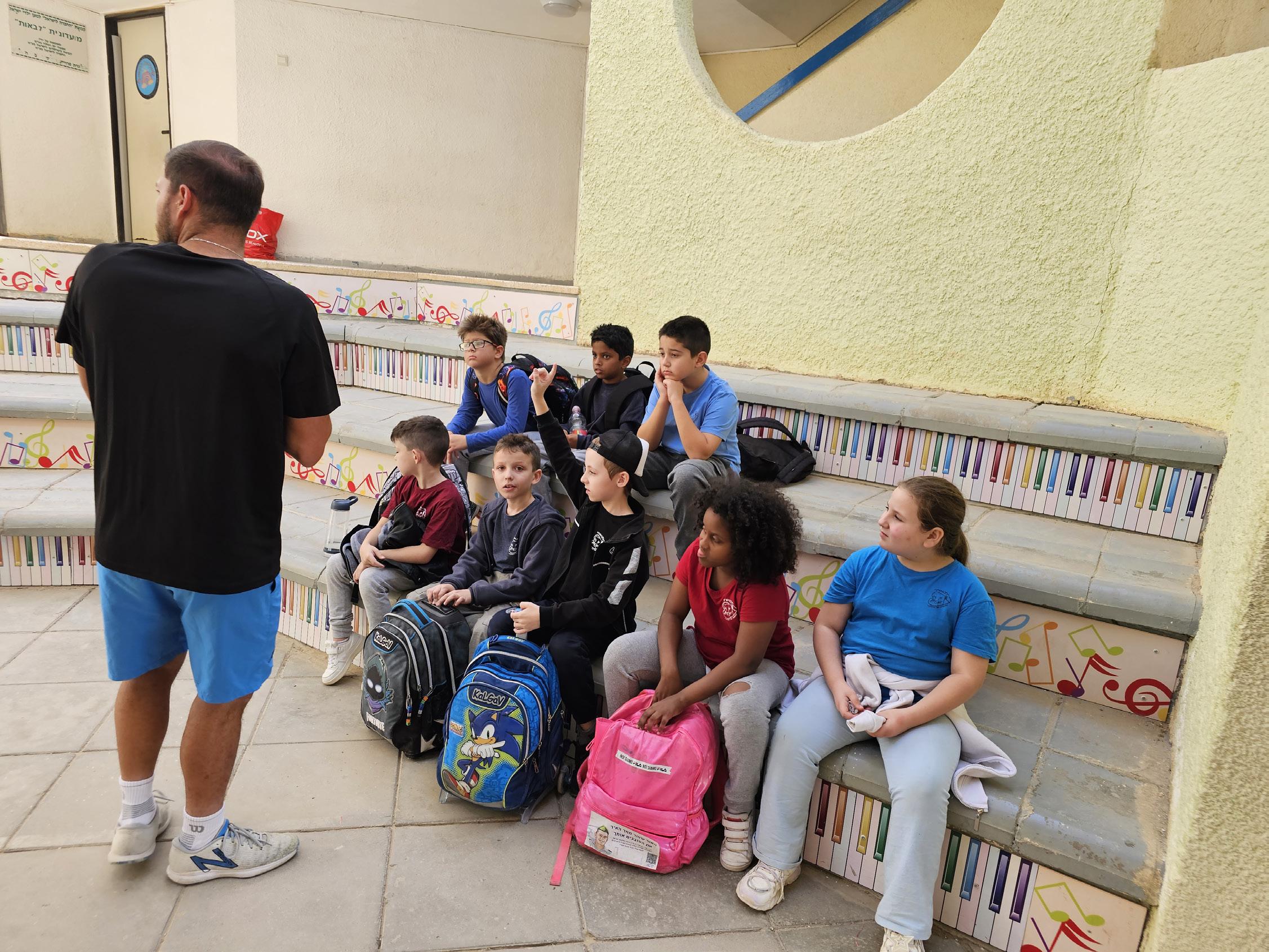
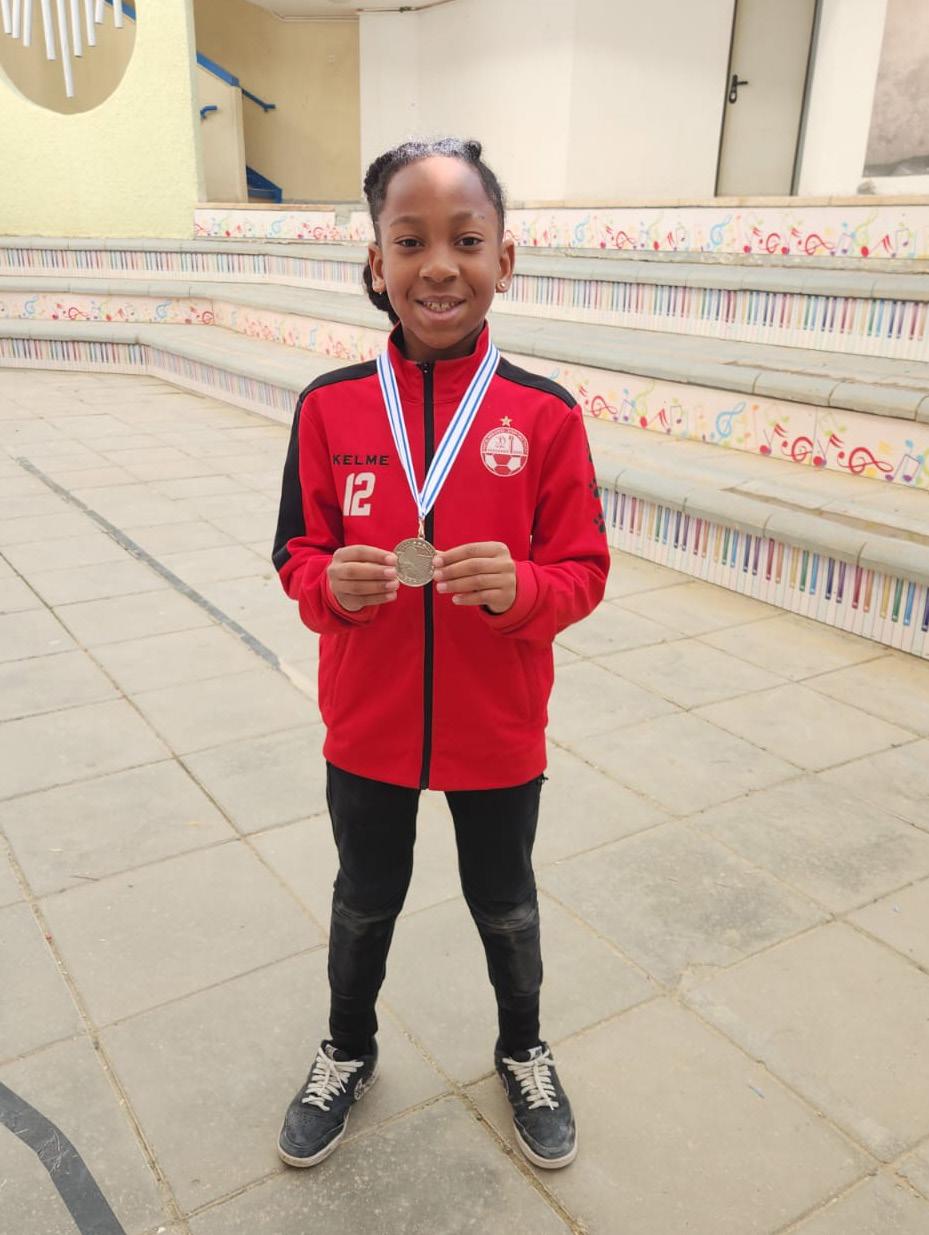
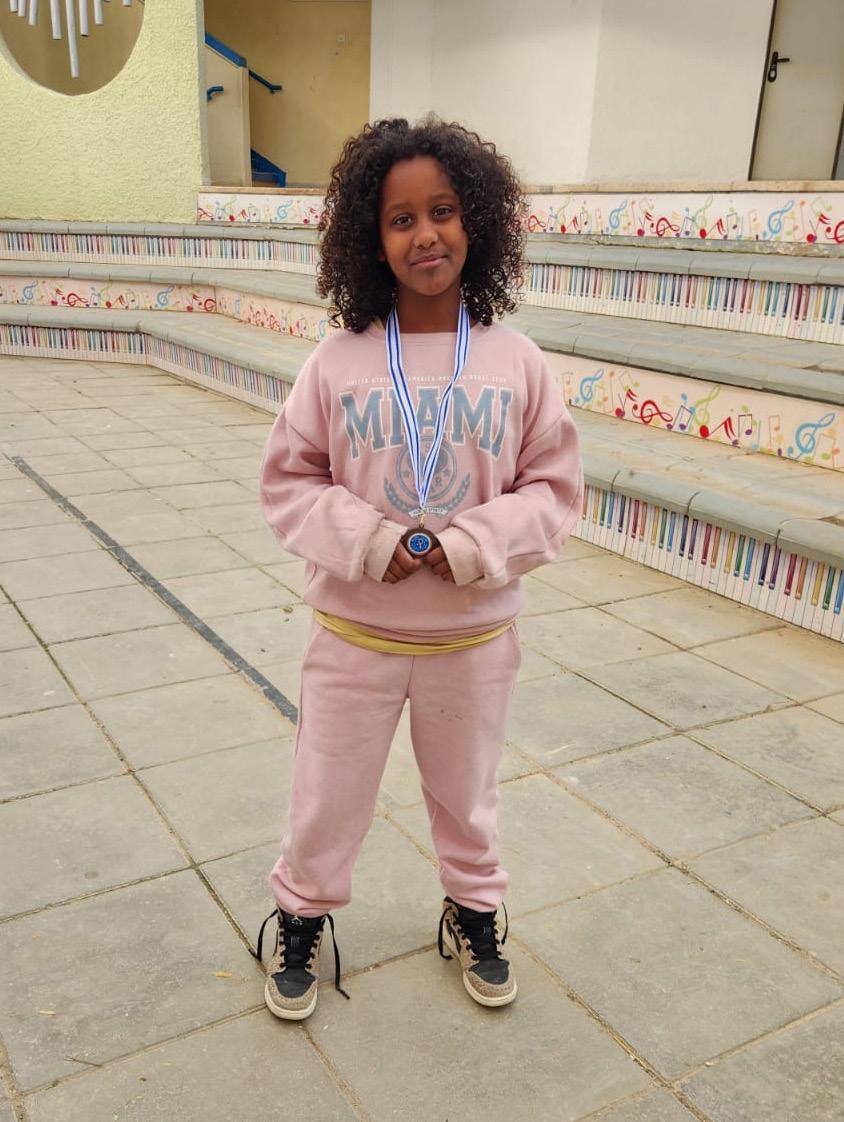
Levavot Elementary School in Arad serves a mix of children, including many who struggle academically, socially, or emotionally. For these students, extracurricular opportunities are limited, and self-confidence is often fragile. The Embrace Program was introduced to address these needs directly in the school environment.
• Participants: 3rd–4th graders selected by the school’s counseling team.
• Format: Two weekly tennis sessions during school hours.
• Setting: Conducted on school grounds for accessibility.
• Coach: Professional ITEC coach Niv, skilled in both tennis instruction and youth development.
• Emotional Growth: Handling both success and failure constructively.
• Social Skills: Collaboration, respect for others, and mutual support.
• Cognitive Skills: Strategic thinking, focus, and perseverance.
Maya is a gentle and introverted 3rd-grade student at Levavot Elementary School.
When the tennis program first opened at her school, Maya refused to join. The idea of playing in a group and trying something new felt overwhelming. But with the patient encouragement and steady support of her teachers and the coach, she began to take small but meaningful steps forward.
At first, Maya would just watch from the side, reluctant to pick up the racket. Gradually, she began to participate — hitting a few balls, smiling a little more, and starting to find her place among her peers. Over time, the court became a place where she felt safe. She learned to cooperate with her teammates, to speak freely with them, and to join in group games without fear.
For Maya, tennis became much more than a sport. It became an opportunity to connect, to dare, and to grow. Seeing her enjoy herself and grow stronger — both physically and emotionally — is the truest measure of success for this program.
Topaz, a 3rd-grade student at Levavot School, is full of energy and emotion. From her very first day in the tennis program, she found an anchor in her coach, Niv. The connection between them was immediate. Niv became a significant figure in her life — someone who understood her, supported her, and believed in her.
Through the structure of the tennis program and her relationship with Niv, Topaz discovered a place where she felt secure and capable of facing challenges. She hasn’t missed a single lesson. She throws herself into each session, giving her best effort, and uses the tools she’s learned on the court — from improving her concentration and self-control to developing better communication with those around her — in her daily life.
Watching Topaz blossom, overcome challenges, and succeed is proof of the power of sport to strengthen both body and spirit.
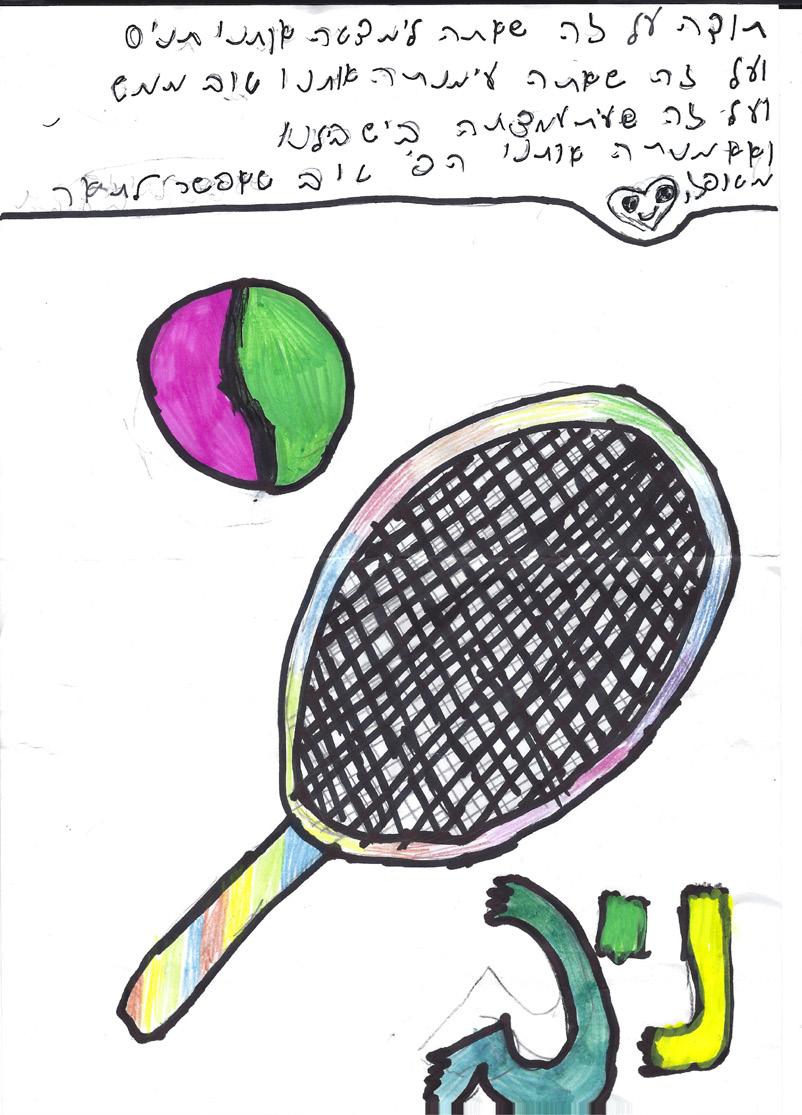

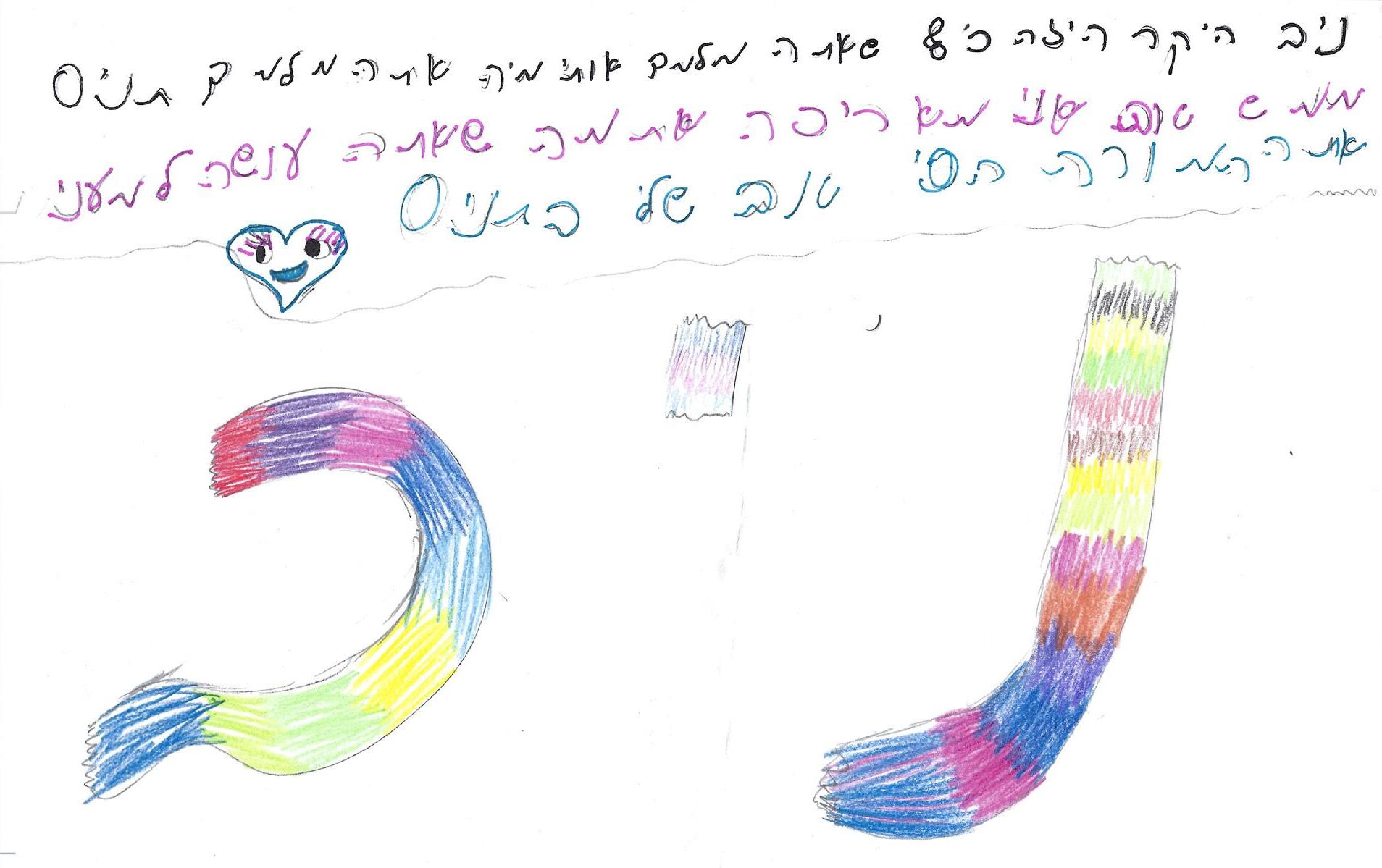

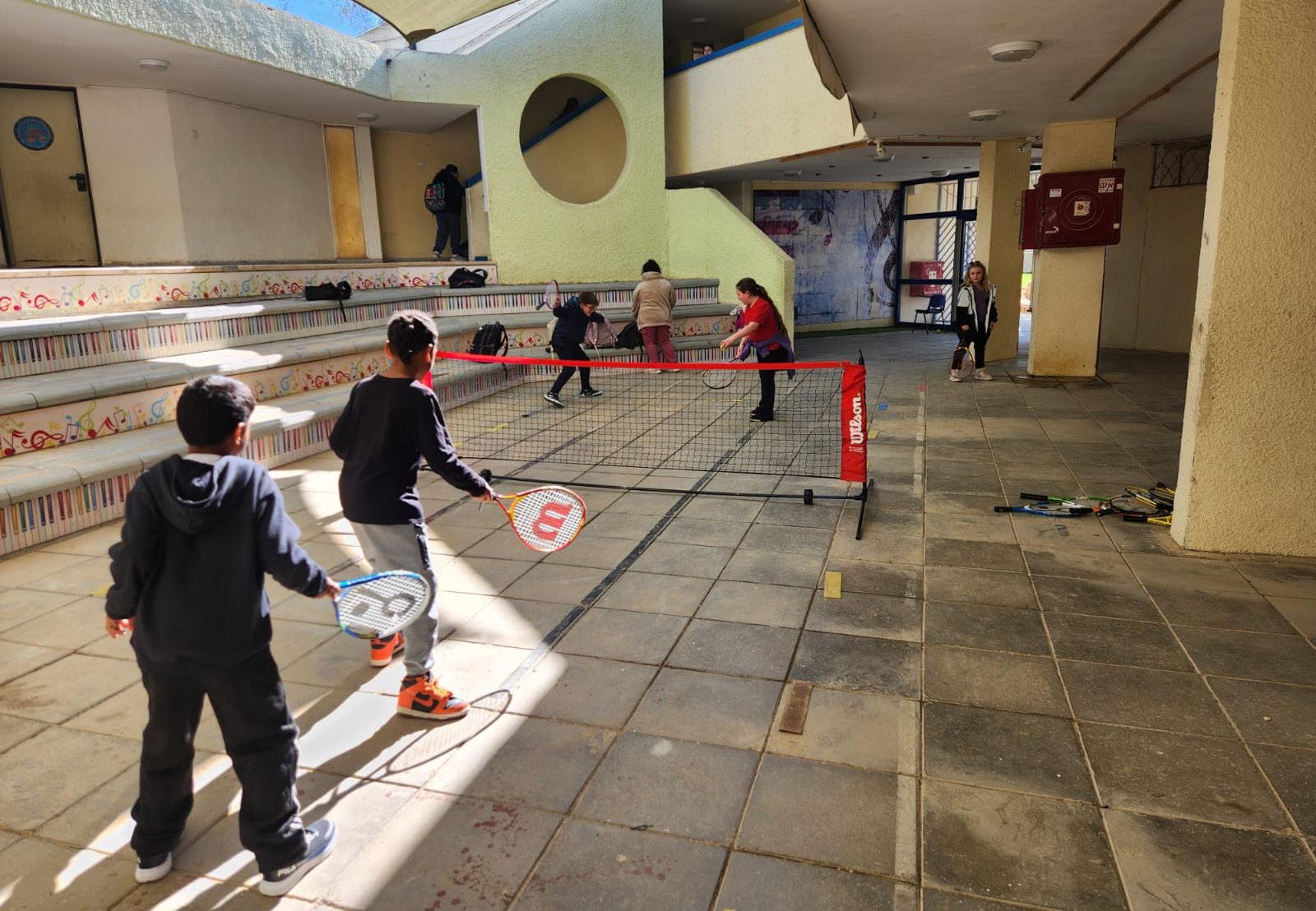
The Bedouin village of Kuseife, near Arad, has few extracurricular resources. The Embrace Arab Sector Program bridges these gaps and promotes coexistence by bringing Bedouin children into ITEC Arad’s activities.
• Participants: 14 children (7 boys, 7 girls) from Kuseife.
• Sessions: Two weekly tennis trainings, one of which includes Hebrew language learning.
• Integration: Joint activities with Jewish children at the center promote mutual understanding.
• Language Skills: Improved Hebrew proficiency for broader social integration.
• Cultural Exchange: Breaking stereotypes and building respect.
• Life Skills: Persistence, teamwork, and emotional regulation.
Mohammed has always been an energetic boy, full of smiles and curiosity. When his parents suggested he join the tennis club this year, he was immediately excited. But the moment he stepped onto the court for the first time, he realized it was going to be more challenging than he expected.
Gripping the racket tightly, he tried to hit the ball — but again and again, he missed. Sometimes he swung through the air, and other times the ball flew everywhere but over the net. Watching the other children succeed made him feel a little frustrated.
That’s when Coach Tai stepped in. Tai wasn’t just an excellent tennis coach — he had a gift for building children’s confidence. With a warm smile, Tai showed Mohammed how to hold the racket properly, how to position his feet, and how to release his swing at just the right moment. “It’ll take a little time, Mohammed,” he reassured him, “but I can already see you have great potential.”
Day after day, practice after practice, Mohammed improved. He listened to Tai’s instructions, refused to give up, and learned from every mistake. Slowly, the balls began to clear the net. His shots became more accurate, and he started to feel like a real player.
Then came his big moment. Tai organized a friendly match, and Mohammed found himself facing one of his teammates. He took a deep breath, focused, and hit the ball exactly as Tai had taught him. The ball sailed over the net and landed perfectly. The court erupted in applause, and Tai smiled proudly: “I told you, Mohammed — you’re on the right track!”
Today, Mohammed plays with confidence. He runs across the court, hits strong shots, and enjoys every moment, knowing that with persistence, success always follows.
Watan has always been full of enthusiasm and curiosity. When she joined the tennis club this year, she was excited — but also a little nervous. She watched other children hit the ball confidently and chase it down with speed, and she wondered if she could ever play like them.
At first, it was not easy. The racket felt too heavy in her small hands, the balls seemed to have a mind of their own, and every missed shot brought a wave of frustration. That’s when Coach Tai stepped in.
Tai, a patient and encouraging coach, noticed her determination despite her struggles. With a smile, he reminded her, “Tennis is a game of patience and persistence. If you keep trying, I know you’ll succeed.”
Determined not to give up, Watan began to practice diligently. She focused on improving her shots, listened closely to Tai’s guidance, and learned to move faster and more accurately. At first, her shots still went astray, but Tai kept encouraging her: “Relax your arm, be light, and let the ball guide you.”
Week by week, things began to change. Her shots started clearing the net with ease, her strokes grew sharper and more precise, and her smile never left her face. She began playing matches, facing off against other children, and feeling that she truly belonged.
Her defining moment came during a small tournament organized by Tai. Facing one of the top players in the group, she took a deep breath, focused, and hit a perfect shot into the far corner of the court. Her opponent couldn’t reach it in time. The crowd applauded, and Tai beamed: “I knew you could do it, Watan! Now you’re a real player.”
Today, Watan plays with joy and confidence, knowing that every challenge is just another step toward success.

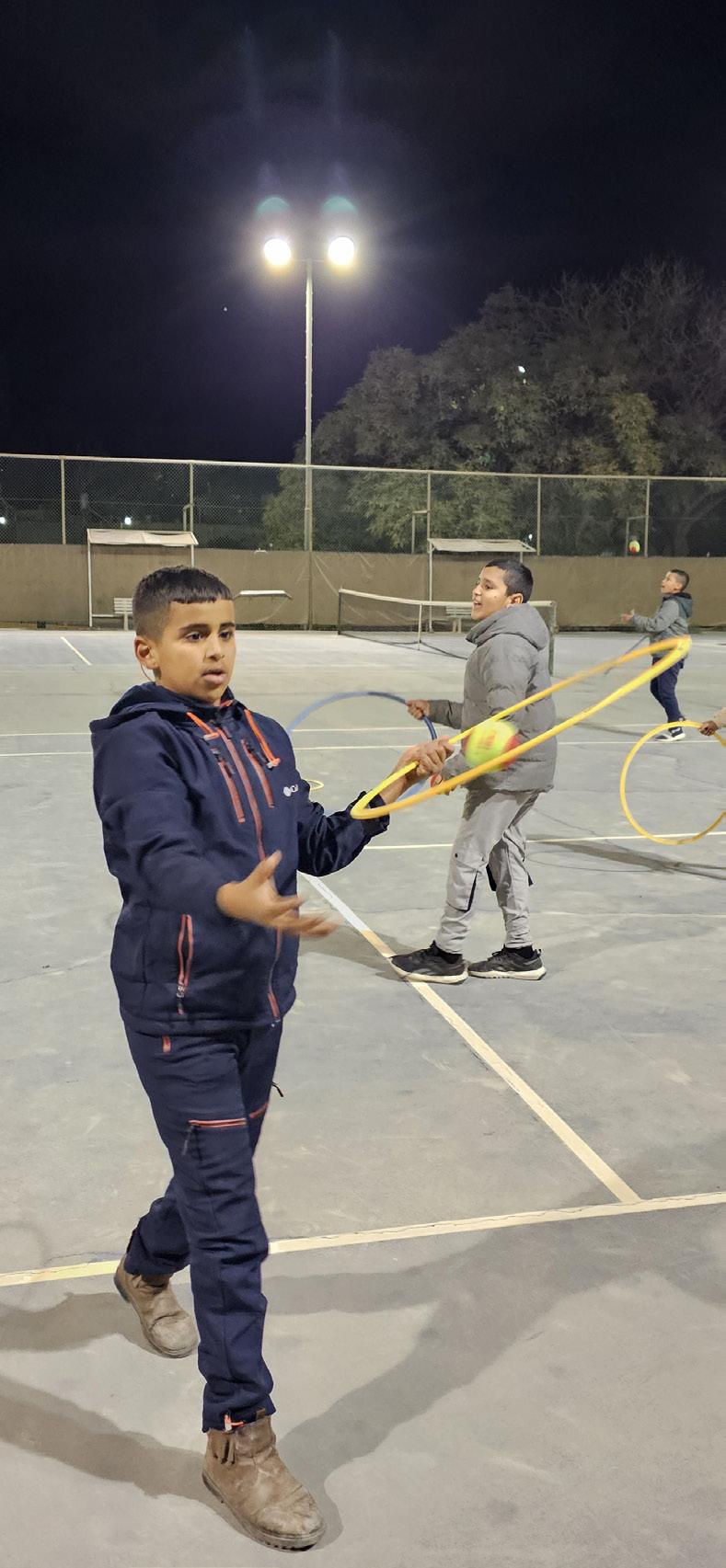
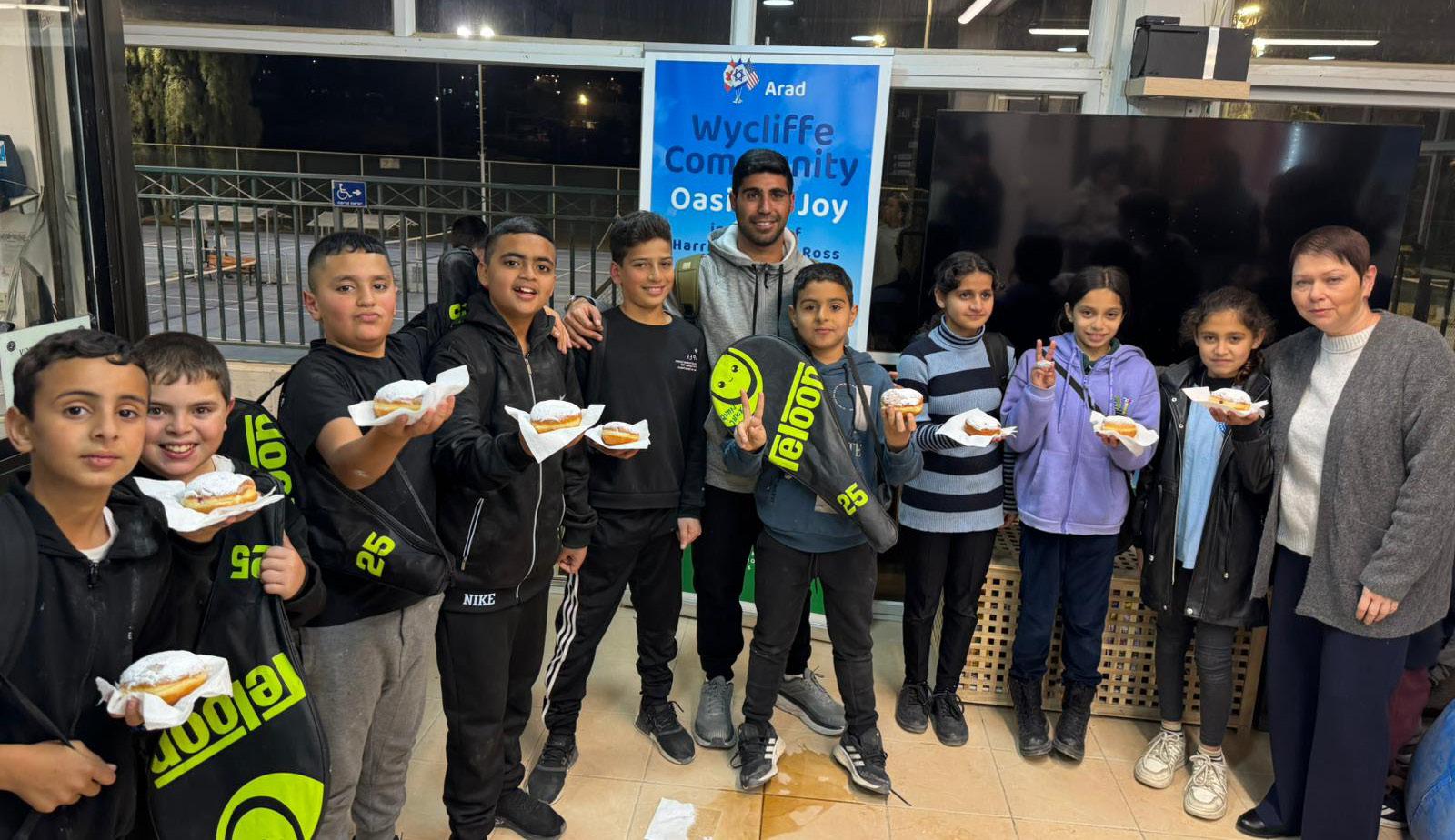
Girls Empowerment unites three distinct groups:
• Ethiopian immigrant girls often arriving with little or no Hebrew and needing help to integrate into Israeli society.
• Russian immigrant girls many of whom have fled war and displacement.
• Local religious girls struggling with social anxiety or low self-confidence.
These girls come from very different worlds, but the tennis court becomes their shared ground where they can build trust, form friendships, and learn life skills that transcend sport.
• Twice-weekly sessions: One tennis-focused and one combining tennis with physical fitness.
• Mentorship & Peer Support: Female role models and a safe environment encourage self-expression.
• Cultural Exchange: Exposure to different traditions, languages, and perspectives.
• Confidence Building: Encouraging girls to speak up, lead, and believe in themselves.
• Social Integration: Breaking isolation by forming diverse friendships.
• Resilience: Coping with life transitions and challenges through sport.
Two years ago, Almasra immigrated from Ethiopia to Israel, settling in the Arad Absorption Center. Now in 6th grade at Talalim School, she recalls those early days:
“When I first came to tennis, I didn’t know how the sport worked, what the rules were, or how to play. Everything was new. The coaches welcomed me warmly and taught me patiently. At first, it was hard — my mother tongue is Amharic, so I struggled to understand the rules and to communicate with the girls in the group. But during the year, I learned to cope with challenges — something that used to be very hard for me. I learned to open up, not to stay closed inside myself. I learned how to be a better person, how things are done in Israel, and how to behave in the right way.”
Tennis also became a source of comfort in difficult times. Having fled war in Ethiopia, Almasra found herself facing the trauma of war again in Israel. The court became a place where her anxiety eased. She adds:
“Tennis helped me a lot with the anxiety I felt after the war. Thank you to Max, our coach, for his patience and kindness.”
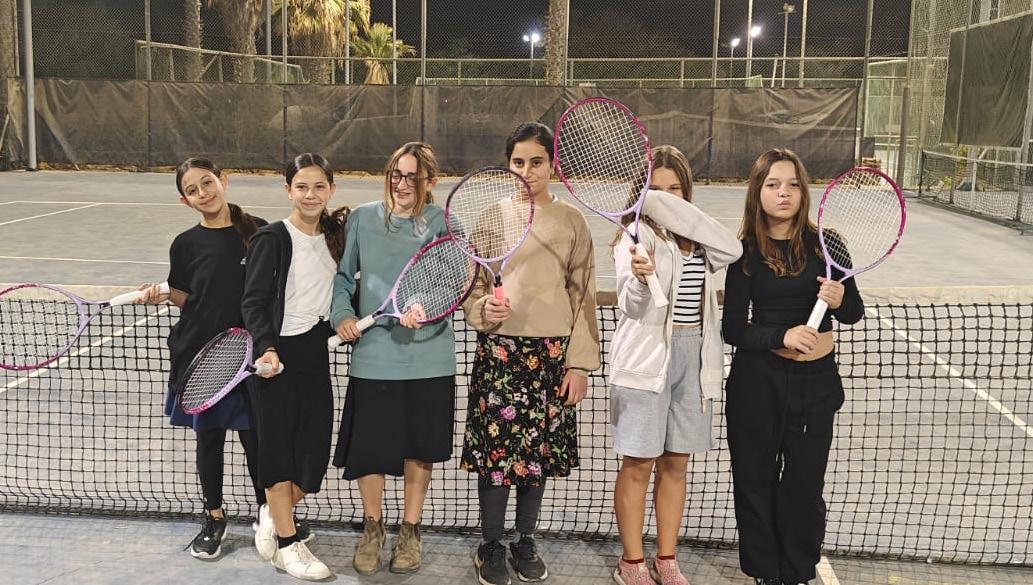
Also an Ethiopian immigrant, Arsima arrived in Israel two years ago, moved into the Arad Absorption Center, and now studies in 6th grade at Talalim School. She remembers her first encounter with tennis:
“Two years ago, I joined the tennis club at the center. At first, I didn’t know what tennis was or if I would even like it. The racket felt heavy, and I was so small that it was hard for me to hold it together with the ball. But because we were welcomed so warmly in the club, I slowly learned, kept trying, and succeeded.”
Over time, the sport helped her grow into a more open, sociable, and confident person. She says:
“After two years, I can say that thanks to tennis I’m more open and friendly. Because of the sports skills I learned, and also thanks to what we learned in the sessions, I have more confidence — in my class and in life in general.”
When she learned that the Absorption Center would close, Arsima struggled emotionally. Yet the thought of tennis practice kept her going:
“During the time they told us about the center’s closure, it was very hard for me. Coming to tennis really helped me and made me forget about the trouble. Thank you for everything! I will never forget this.”
Thank you for your tireless investment, even when things were mentally and physically hard, even when the girls wanted to give up on themselves. You took the lead, taught them commitment, sportsmanship, friendship, and the meaning of being truly Israeli. You taught them mutual responsibility and deep respect. We thank you for walking this path hand-in-hand with us, with warmth and endless love.
- Absorption Center Manager
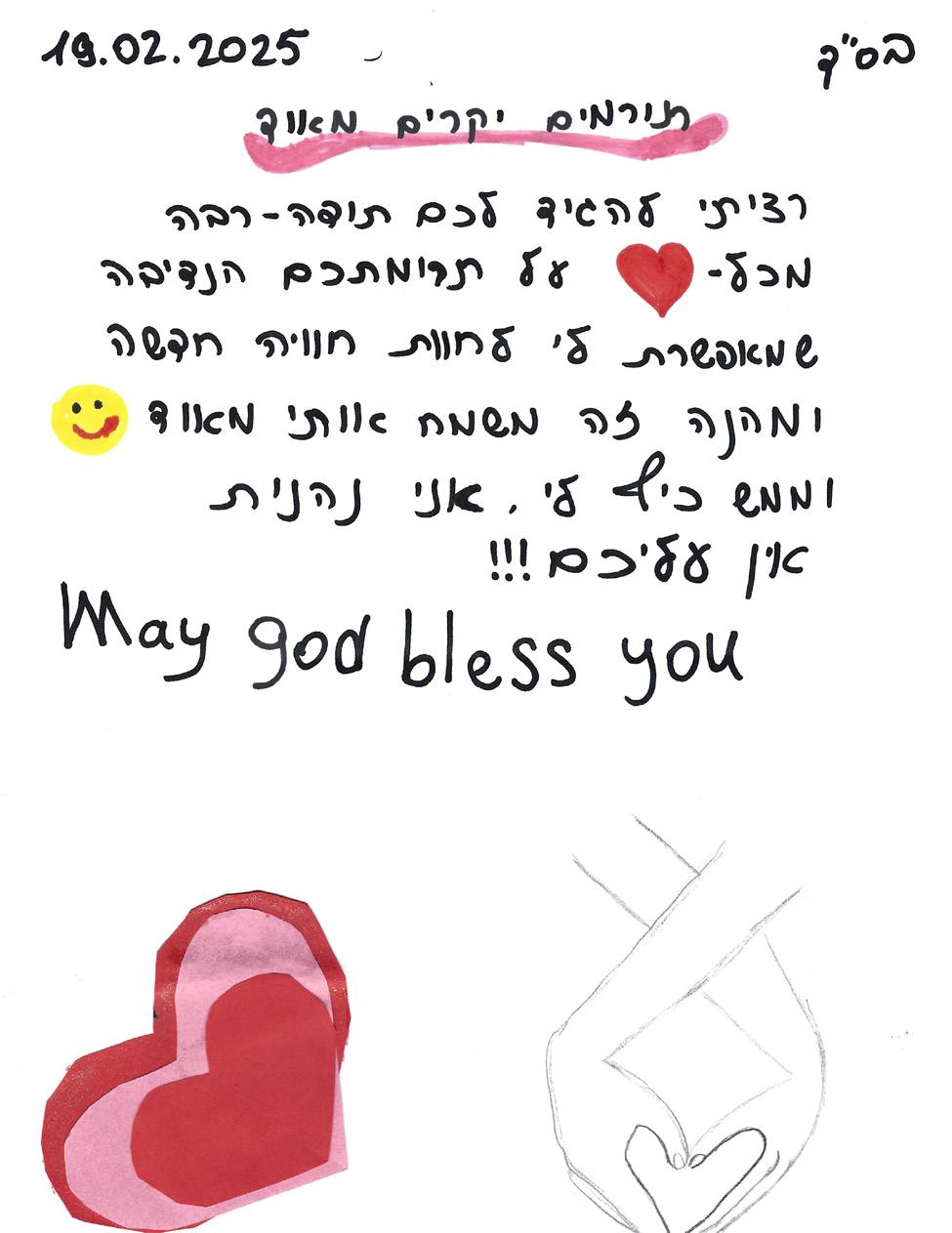

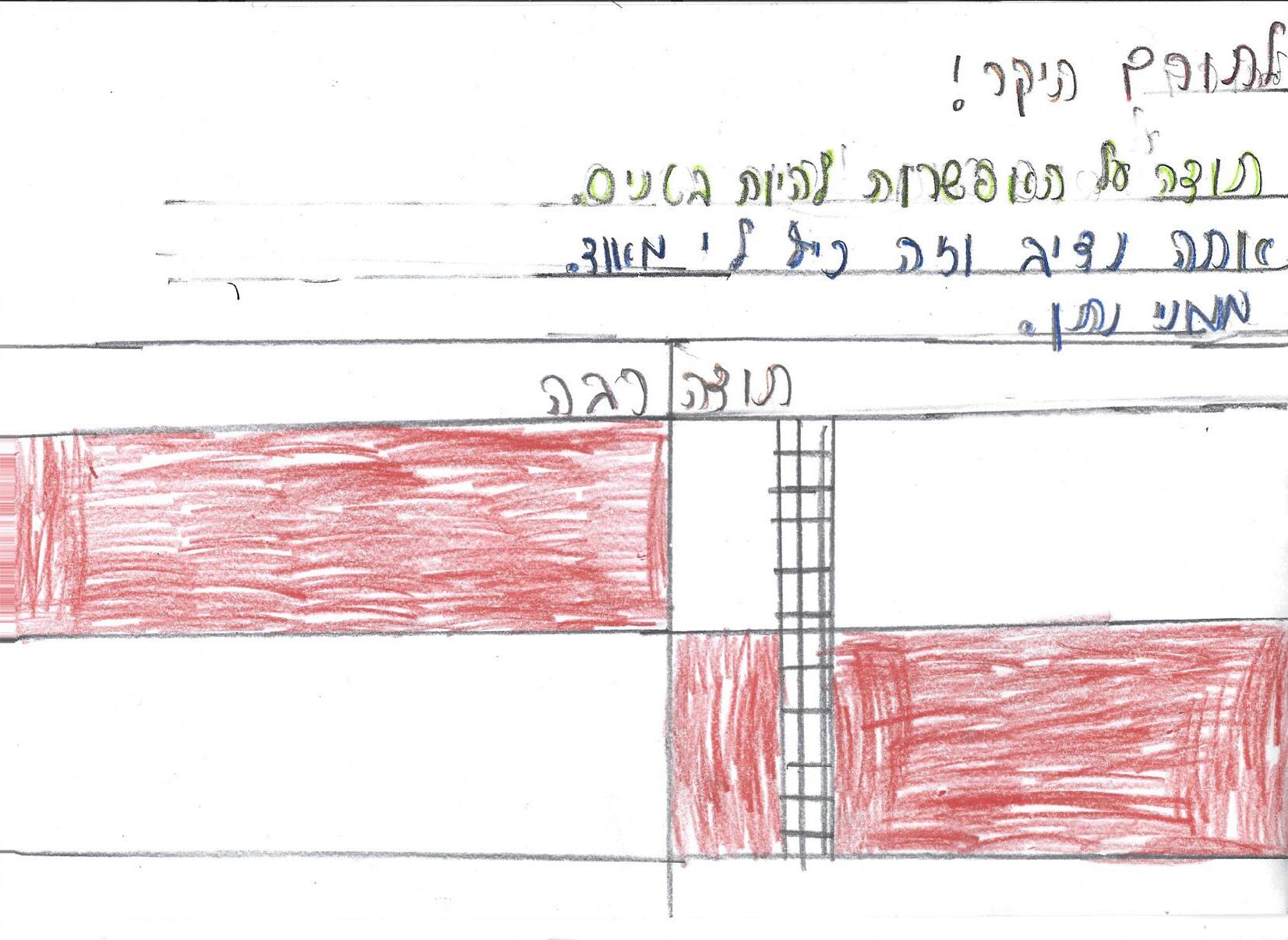
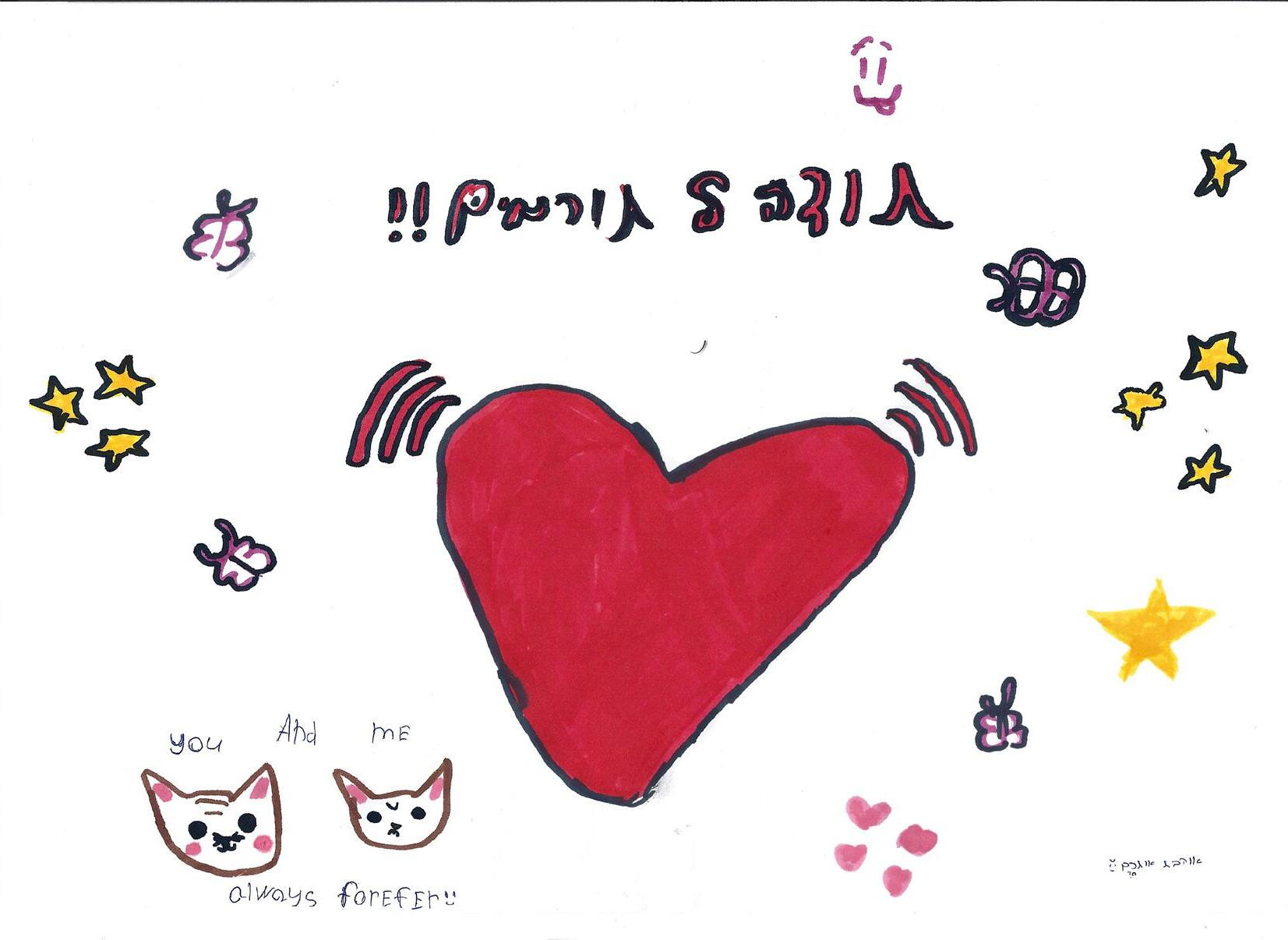
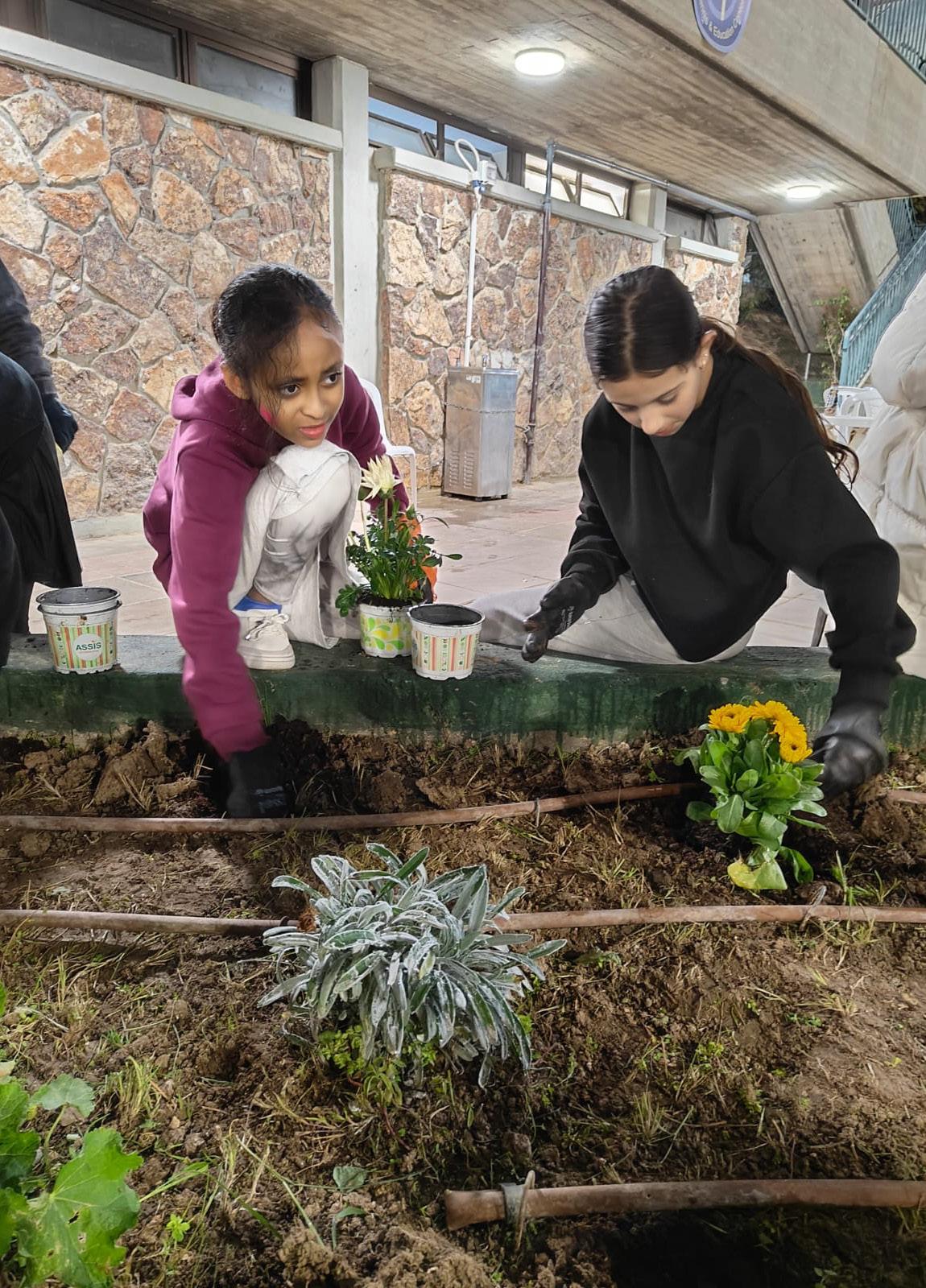
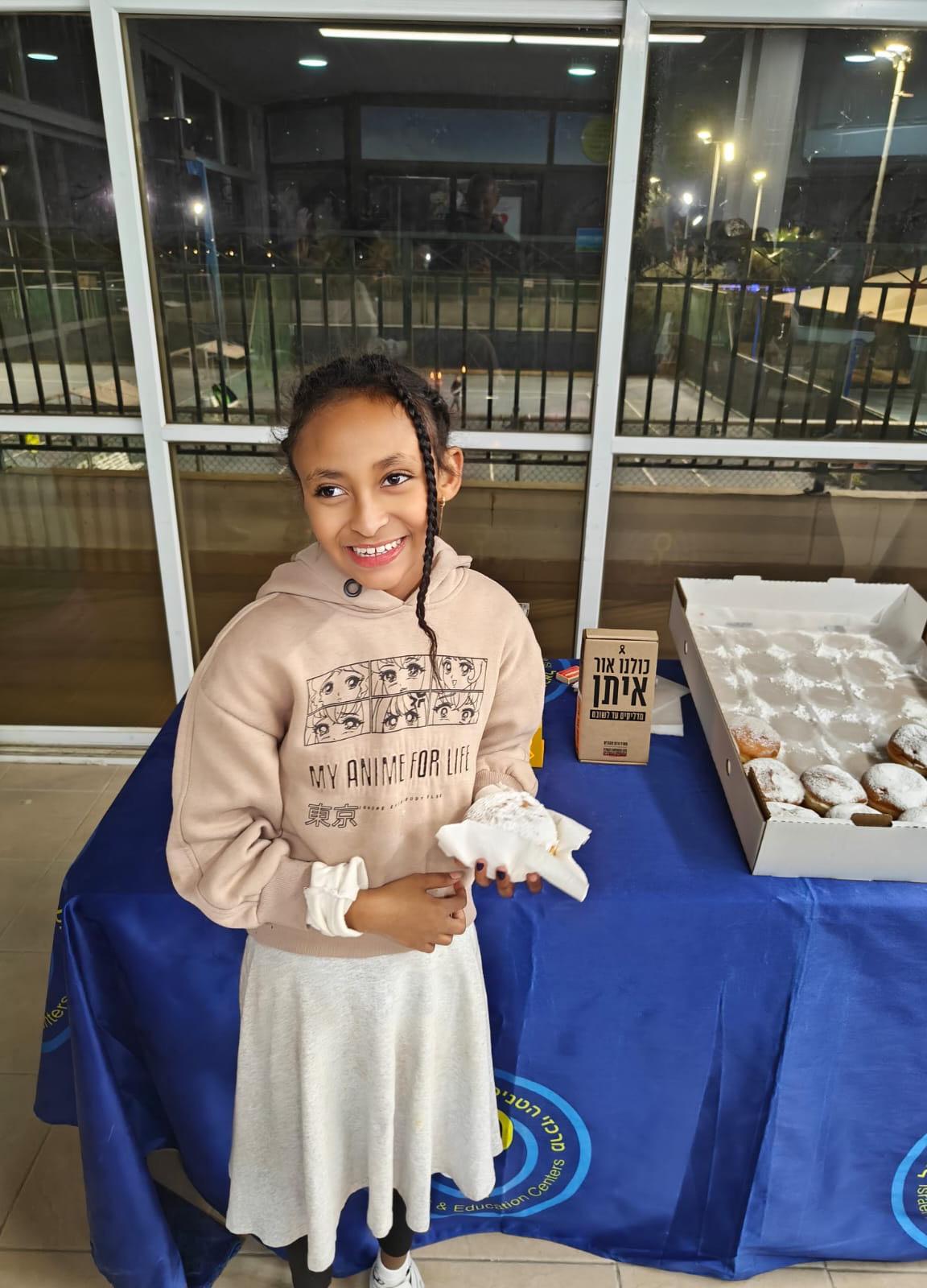
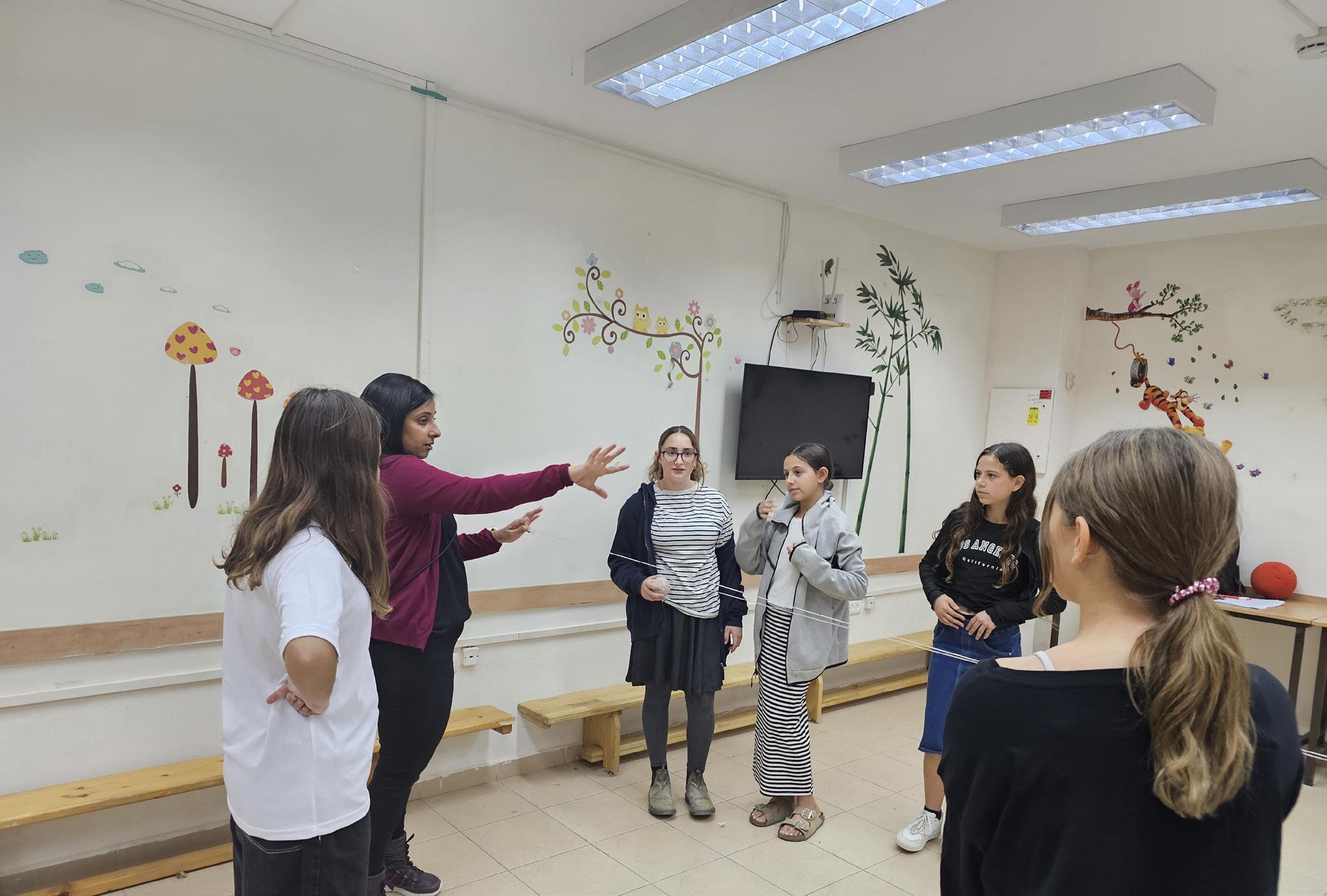
The Special Needs Program at ITEC Arad serves children from the Yaelim School’s special education classes. These children live with autism spectrum disorder, speech impairments, developmental delays, and other learning or communication challenges. Many cannot access after-school activities for financial or logistical reasons. For them, the tennis court becomes a rare space of belonging and possibility.
• Weekly sessions during school hours so all children can attend.
• Adaptive coaching led by Svetlana, a specialist in working with children with disabilities.
• Holistic learning combining tennis skills with life lessons in patience, respect, and teamwork.
• Physical: Better balance, coordination, and motor control.
• Social: Turn-taking, respectful communication, and teamwork.
• Emotional: Increased self-worth and resilience.
Dvir struggles with a severe speech disorder that makes it hard for him to communicate, especially with his classmates. Often, they did not understand what he was saying, and this sometimes led to teasing and laughter. His self-confidence suffered, and he avoided trying to speak with his peers — making an already difficult situation even harder.
Everything began to change when he joined the tennis program. Here, he found an activity he enjoyed and could excel at. Realizing he had ability in the sport changed how he saw himself — and how others saw him. He and his classmates began to find common ground on the court, improving his social standing and the way others treated him.
Today, Dvir comes to every practice, eager and determined not to miss a single session. Tennis has given him a safe place to grow his resilience, learn to communicate more confidently, and prove — to himself and others — that he is just as capable as any other child.
Netanel faces developmental delays and has trouble handling social conflicts, often leading to outbursts of anger. This created tension with classmates and drained his energy.
Through tennis, Netanel learned restraint and developed better communication skills. He discovered that arguments lead nowhere — and that the time spent fighting could be used for something he loves: playing tennis. This shift helped him avoid unnecessary conflicts and even work to resolve disputes around him peacefully.
The change was not only in his behavior but in his mindset. He began focusing on what truly mattered to him, turning tense situations into positive interactions. His relationships improved, and his outlook became brighter.

Karolina, age 11, is on the autism spectrum and studies in a communication-specialized class at Yaelim School. She faces challenges in academic, emotional, social, and behavioral areas, and follows an individualized learning plan.
In the early years, tennis was difficult for Karolina. She struggled to understand the purpose of the game, the rules, and how to execute the required actions. But neither she nor Coach Svetlana gave up. Over time, Karolina improved steadily, showing significant progress in her posture, ball control, and ability to follow the flow of the game.
Most importantly, she learned how to handle setbacks, understanding that persistence brings results and that there is no reason to give up.
Shon, also 11 and on the autism spectrum, learns in a communication-specialized class at Yaelim School. Despite his communication difficulties, Shon has made impressive strides thanks to tennis.
Practices provided him with a safe environment to develop teamwork, patience, and an understanding of processes. He learned to wait his turn, relate respectfully to peers, and adjust his behavior based on game situations. He also learned to cope with losses gracefully and maintain proper conduct regardless of results.
Coach Svetlana’s clear instructions and supportive approach helped Shon significantly improve — both in tennis skills and in understanding social situations. This has boosted his self-confidence and made it easier for him to integrate into the group.
